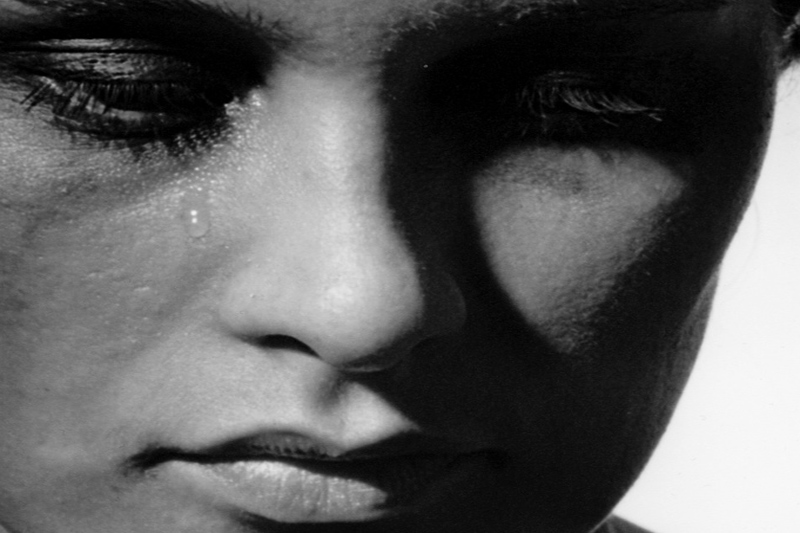“Does your weakness show as your strength?”
Rivka leans towards me from behind a scratched wooden desk in her office at Neve Yerushalayim Girls’ Seminary. The thin metal folding chair I’m sitting on creaks as I cross and uncross my nylon covered legs under my long blue skirt. It’s October, but the Jerusalem sun pouring through the open window feels as hot as it did in July. Sweat gathers on my forehead, under my armpits, even on the soles of my feet, sliding around in the cheap sandals I bought only a few weeks ago in a local shop.
It’s 1972, and I’m 17 years old. I’m three months into what’s supposed to be a one-year stay at a religious seminary for girls who want to immerse themselves in Orthodox Judaism in the heart of the Jewish homeland. Jerusalem, the most sacred, the most holy, the most healing of Jewish cities. A city that is like a loving mother holding out arms of unconditional love for her lost children. That’s how I thought about it back in Chicago. At least, that’s how I would have thought about it if I could have put it into words. Back in Chicago, I helped prepare sumptuous Sabbath dinners at the home of the local synagogue youth leader every Friday evening. I chanted Psalms on the sandy Lake Michigan shore just below the synagogue grounds. I jumped out of bed at 5 a.m. every Thursday morning senior year in high school to study Talmud before homeroom with my equally fervent suburban friends. My teenage rebellion morphed into a search for salvation in a hippie dress. I believed in a God who responded to three-part harmony and the chords of the acoustic guitar.
Now I stare at the leather bound Bibles and Talmudic tractates stacked on Rivka’s desk and spilling out of the bookshelf on the wall behind her. I’ve studied these books. I’ve pored over their Hebrew and Aramaic phrases, learned rabbis guiding me through the nuances of the 613 religious commandments every Jew was supposed to follow. But what did I actually learn? And how did I miss the crucial laws of modesty that governed so much of what religious girls could wear and say and do?
“You could get married, you know,” Rivka says. “There’s no commandment for girls to study Torah. Rabbi Rivkin would be happy to make a match for you.”
And so he would. That’s the promise of the religious life. Follow these strictures and you will never be alone. You will live in a community; you will never go hungry.
If you are a woman, though, you will relinquish a part of your self just as I reluctantly relinquished the faded blue jeans I naively shipped to Israel in a battered K-Mart trunk. Was that only three months ago? Since then I’d learned more Jewish law pertaining to women than I’d ever learned in those Talmud classes back in Chicago. Now I knew to dress in long skirts and long sleeves so as not to attract male eyes; to pin up my seductive long hair; to sing my Psalms only in the company of other females because a woman’s voice is a temptation to sin.
How does Rivka know I am weak? Why does she think I am strong? I don’t dare ask because if I speak, I’ll break.
The powerful aroma of chicken soup wafts into the office from the kitchen down the hall. The other girls have been busy cooking for tonight’s Sabbath dinner and the scent of their labor fills the room. I can picture the thick white Sabbath candles we’ll be lighting in just a few hours and the colorful embroidered tablecloth on which we’ll set an array of homemade delicacies. I can hear the folktales we’ll tell around the table of mystics in search of God and feel the haunting pull of the Hebrew melodies we’ll sing before and after the meal, our girls’ voices clear and strong, free to soar in a girl-only space. My weakness is my longing to be part of this transcendent world, but where once I believed in an invisible but loving God, now all I have are the real forms of the Orthodox men I see every day on the street, with their bushy beards and black hats, averting their eyes from my woman form as they pass me on the sidewalk. The only thing I know for certain is that I can’t breathe in this restricted air. One teardrop escapes my left eye, slides down my sweaty cheek. I turn my head just slightly to the side, hoping Rivka won’t see.
“Are you sure you want to leave?” Rivka asks.
“Yes, I’m sure.”
Photo Credit: maren.rockt via Compfight cc
Lynda Levy
Lynda Levy is a retired psychologist and life coach. After 30+ years living in Los Angeles, she recently moved to Phoenix to be close to family and is now (sort of) adjusting to the open spaces and thinner air of the desert. Lynda has worked her way through a series of absolutist-cultish groups, from Orthodox Judaism, to Primal Therapy, to Kleinian psychoanalysis, and finally (maybe) has stopped looking for "the" answer and is more interesting in expressing her own take on the world as she sees it. Lynda has been in writing classes and workshops with every writing guru in Los Angeles and will continue to try to learn from others while knowing that no one else can tell you what you have to say. When she's not writing Lynda is cooking, reading, studying Italian, watching films, or traveling.

Thanks, Julie!
Lynda-
Every time I read this essay, I get chills.
Bravo, you are a fantastic word weaver.
Best-
J